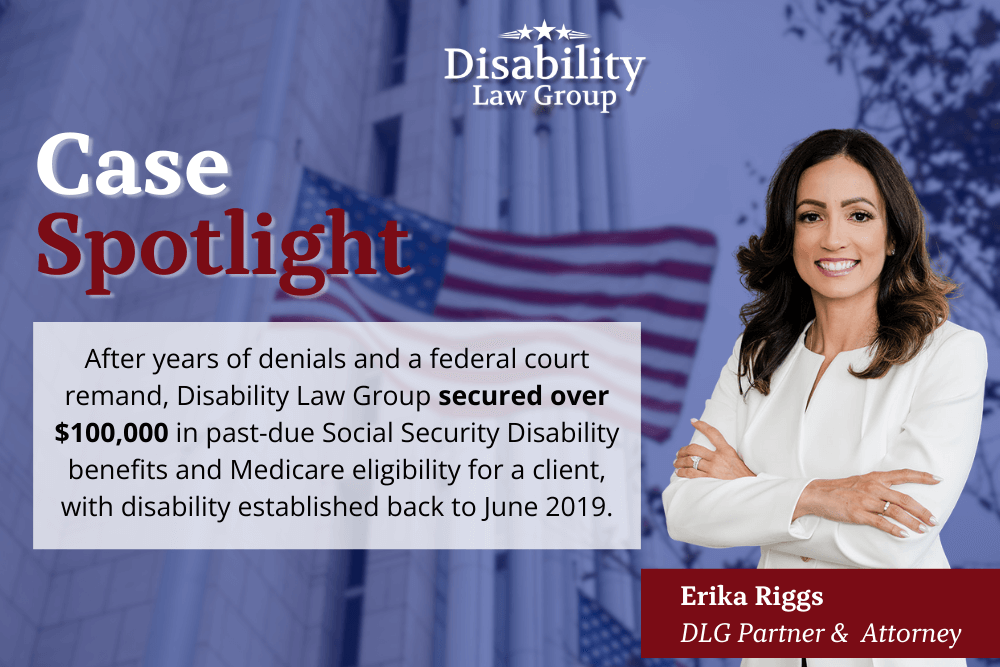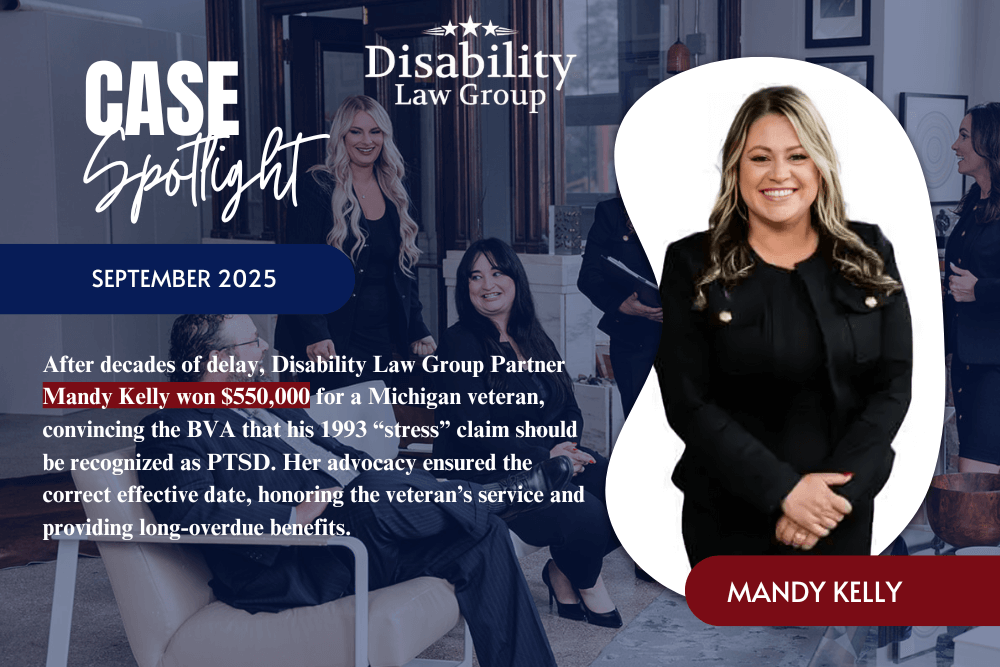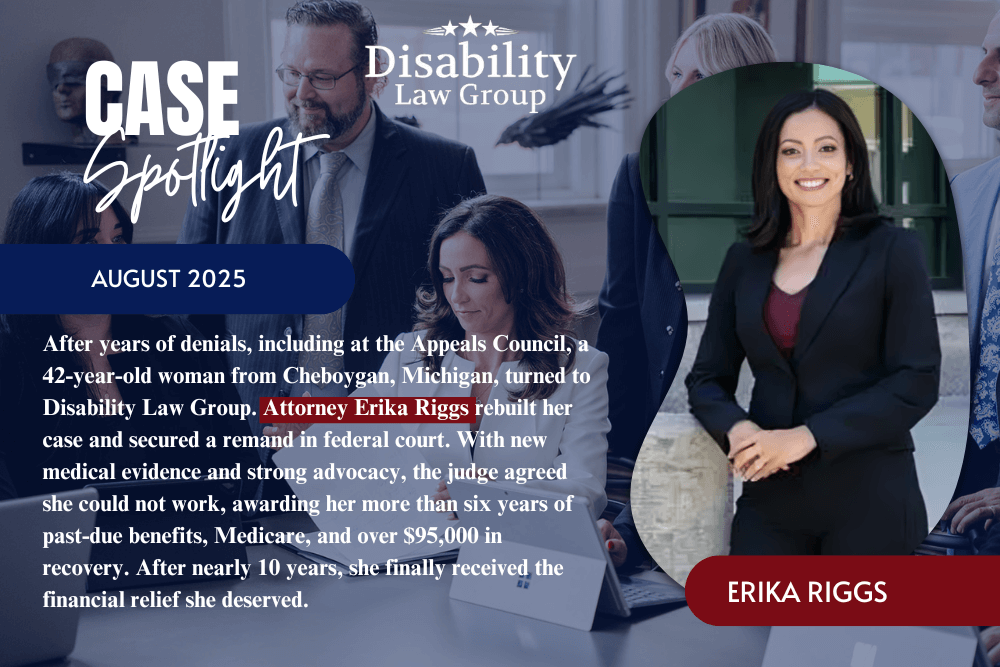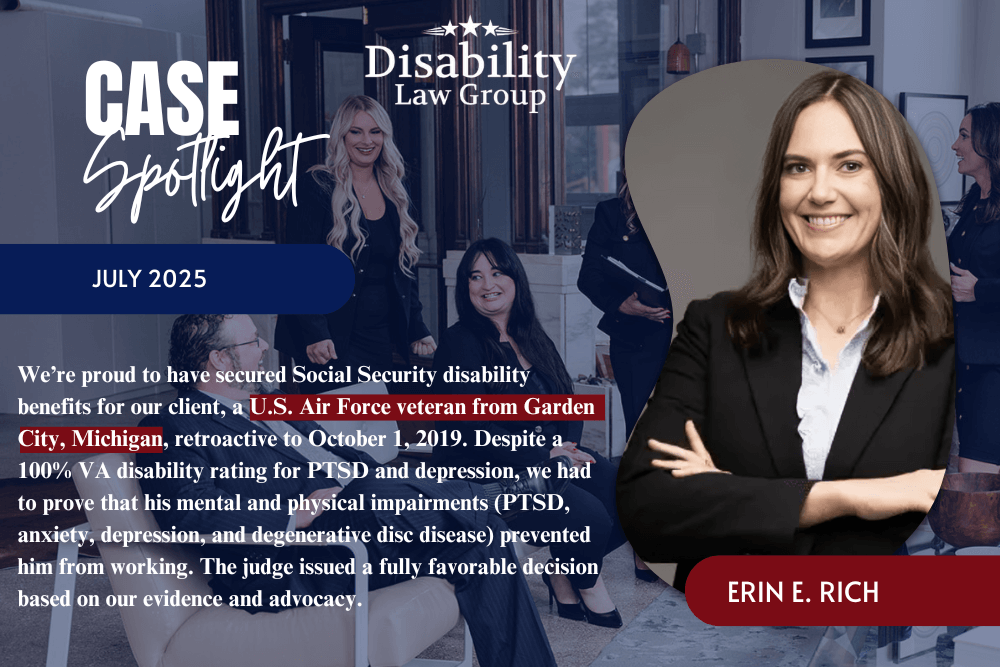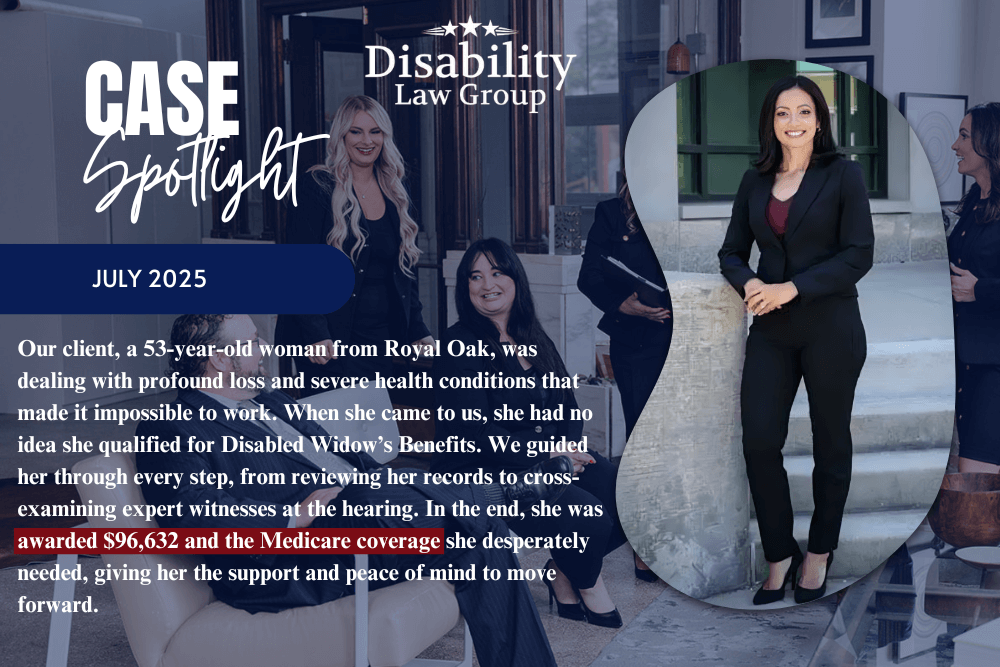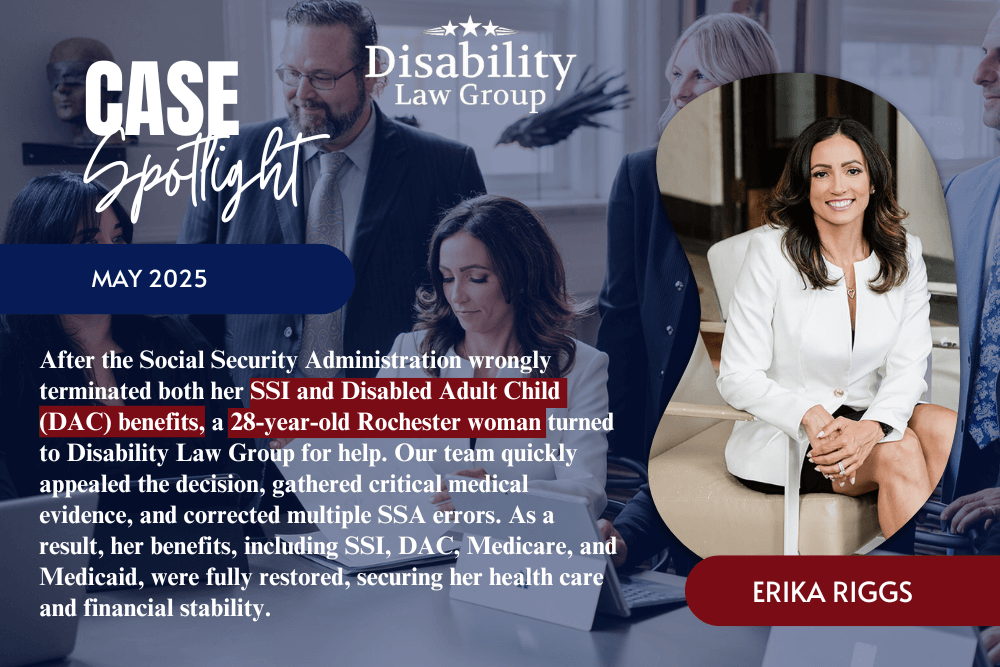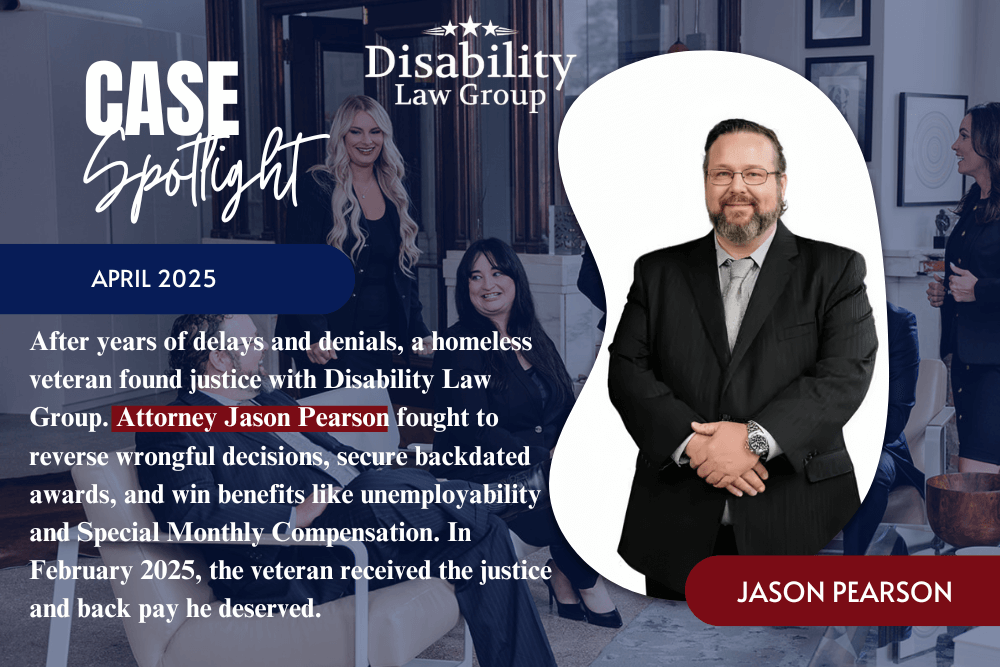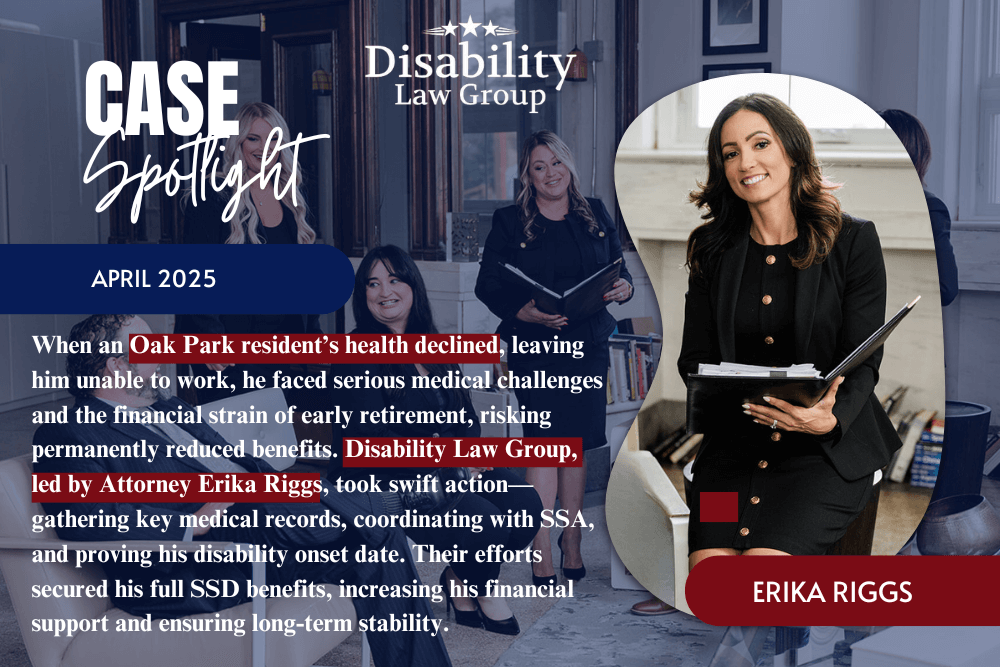When people think about Social Security Disability cases, they often assume approvals happen quickly or that a denial means the end of the road. This case shows just how inaccurate that assumption can be.
After years of denials, multiple appeals, and a federal court lawsuit, Disability Law Group helped a client from Warren, Michigan secure Social Security Disability benefits, immediate Medicare eligibility, and more than $100,000 in past-due benefits. Most importantly, the judge agreed that he had been disabled since June 2019, several years earlier than Social Security initially acknowledged.
A Long Road to the Right Outcome
Our client first applied for disability benefits in his mid-40s after years of worsening orthopedic and musculoskeletal conditions. Despite extensive treatment and clear functional limitations, his claim was denied at every level, including after his initial hearing.
By the time he contacted Disability Law Group, he was physically, emotionally, and financially exhausted. Even so, he remained determined to pursue the benefits he knew he deserved.
We took over the case and pursued every available appeal, first to the Appeals Council and then to the United States District Court. That decision ultimately changed the course of the case.
Federal Court: Where the Case Turned
The federal court judge agreed with our arguments and found that the prior Administrative Law Judge committed significant legal errors and failed to properly evaluate key medical evidence. The court ordered the case remanded for a new hearing, clearly stating that the prior analysis was flawed.
That remand allowed for a full and fair evaluation of the evidence, which ultimately resulted in a fully favorable decision.
Severe Orthopedic Conditions and Surgeries That Increased Limitations
This case involved severe bilateral knee pathology, combined with ankle, foot, and back impairments. The medical record showed extensive and ongoing limitations, including:
- A scope procedure that worsened pain
- A total knee arthroplasty
- A subsequent right knee replacement scheduled for early 2024
- Chronic instability and significant functional loss
- Radiating symptoms into the left leg
- Reliance on assistive devices
- Difficulty remaining upright or stable
Despite this evidence, Social Security initially claimed he could still perform work, including sedentary work. We strongly disagreed and continued to fight for a decision that reflected the reality of his functional limitations.
Meeting and Medically Equaling Listing 1.18
One of the most critical arguments in this case involved Listing 1.18, which addresses major joint dysfunction. This listing requires evidence such as:
- Chronic joint pain and stiffness
- Abnormal motion or instability
- Imaging confirming joint damage
- A medically required two-handed, weight-bearing assistive device
We demonstrated that the combined impact of his knee, ankle, foot, and back impairments caused him to meet or medically equal Listing 1.18 well before his surgery date. We also established that his disability began in June 2019, not only after surgical intervention. The judge agreed with this analysis.
Why the Case Was Strong Even Without the Listings
Even beyond Listings 1.18, 1.15, and 1.16, this case clearly warranted approval at step five of the disability process, which evaluates whether a claimant can perform any work.
The evidence showed that:
- He could not sit, stand, or walk for a full workday
- He required frequent position changes
- Pain significantly interfered with concentration and focus
- He needed excessive breaks
- Instability made sustained work unsafe
Based on these limitations, he could not perform any full-time work, including sedentary employment. The judge agreed so strongly that she did not call a vocational expert to testify, an uncommon and powerful outcome.
Fully Favorable Decision and Life-Changing Results
After reviewing the record and hearing testimony, the judge issued a fully favorable decision, finding the client disabled as of June 2019. As a result, he received:
- More than $100,000 in past-due Social Security Disability benefits
- Immediate eligibility for Medicare
- Ongoing monthly disability benefits
- Long-overdue financial stability
At the time of the final decision, the client was 50 years old, a factor that strengthened the case under Social Security’s vocational rules. However, the success of this case depended on proving disability well before he reached age 50, which allowed for a significantly larger award of retroactive benefits.
Why This Case Matters
This case highlights several critical truths:
- A denial is not the end of the process
- Federal court appeals can be successful
- Judges must follow the law, and courts will enforce accountability
- Severe orthopedic conditions often involve multiple joints and combined limitations
- Disability determinations are based on functional ability, not just diagnoses
Most importantly, it demonstrates the value of working with an experienced disability law firm that understands medical listings, vocational rules, and federal court litigation.
We’re Here to Help
If you or someone you love has been denied Social Security Disability benefits, even after a hearing, do not give up. Many of our strongest cases are won on appeal, including at the federal court level.
At Disability Law Group, we handle disability claims nationwide and know how to build cases that withstand scrutiny from the initial application through federal court review. We are here to stand by your side and fight for the benefits you deserve. Book a free consultation here.

